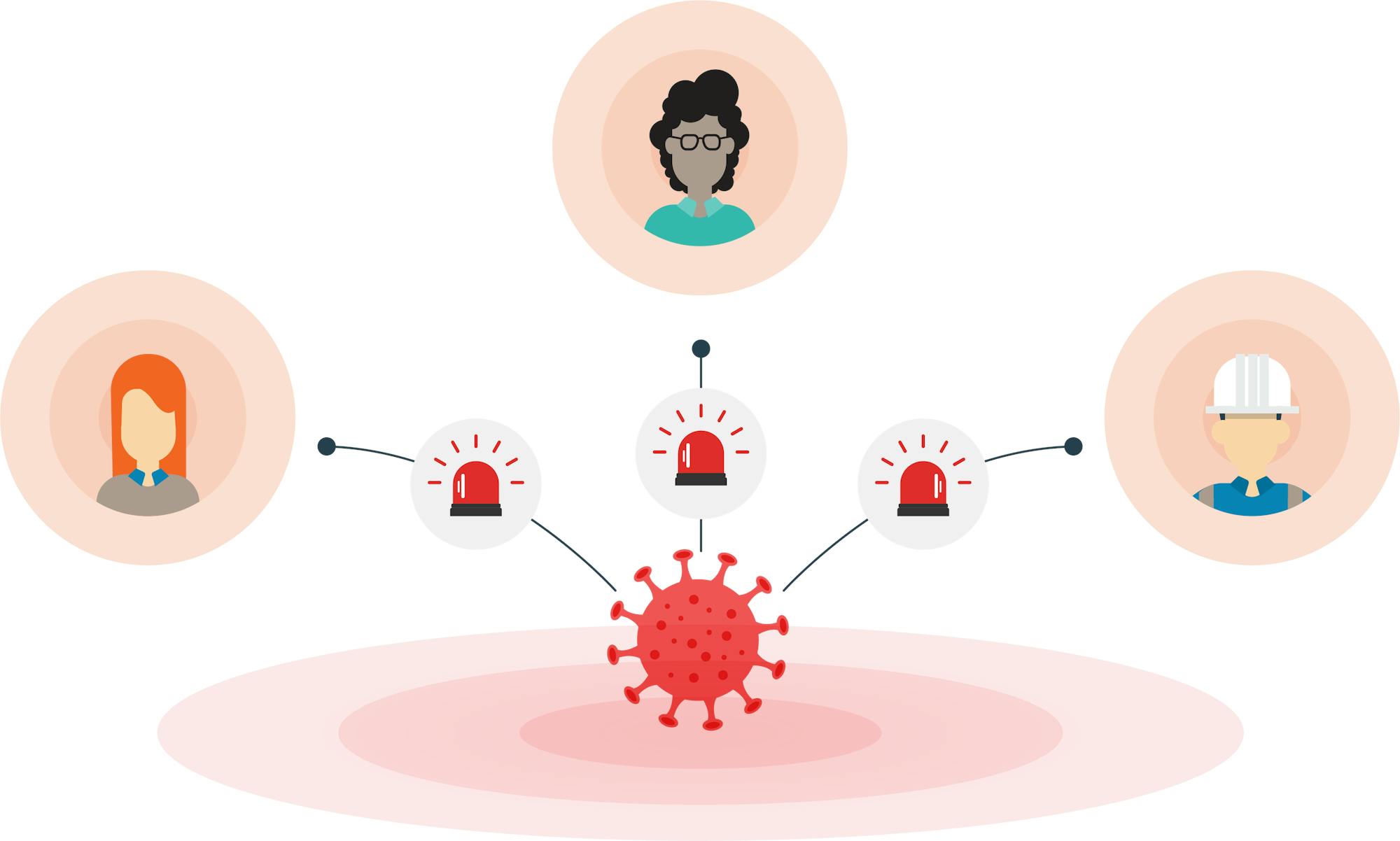
Experiencing a pandemic has many people feeling overwhelmed in their personal life and at work. We're all dealing with balancing the need to protect ourselves and our loved ones whilst needing to provide for our families.
Business leaders take on this burden for their whole workforce and shareholders.
That’s a tough spot to be in.
Managers have three options: to manage COVID-19 in their workplace; to close the doors; or to play ‘Russian Roulette’ with people's lives and the law, and hope this all goes away quickly.
Is this going away soon?
It’s nice to think Covid will go away soon. This makes us feel that as long as it’s a short term issue then we can get away with making no decision. Sometimes the cogs of business spin painfully slowly, which can lead people to think that by the time all stakeholders are on board with a solution, herd immunity or a vaccine will be here.
The reality is that a vaccine is not going to appear overnight, Dr Anthony Fauci has spoken about this at length and natural herd immunity may never occur, or at least it would take a massive human toll.
You simply can’t ignore a disease away. And you can’t ignore the costs of doing nothing about it.
Cost of not being open
Globally economists think that COVID will cost the economy nearly $9 trillion. Big global numbers like this can feel a little intangible. Let’s drill down a little:
- Economists have estimated that Harvard University and the University of Michigan will be out of pocket to the tune of nearly $1bn each.
- McDonald's revenue is down by 23.9%.
- Small Business Revenues have dropped 52% and payrolls have declined 54%.
- Alison had never been laid off till she lost her job at a publishing company when Covid hit. Her experience is a story that’s happened to millions just like her this year.
Cost of litigation
As of June, over 2,000 lawsuits relating to COVID-19 have been filed in federal and state courts in the US.
Early evidence suggests many of the cases coming through are targeting businesses that did not follow best practices.
Daily health checks, social distancing, mask-wearing and rapid contact tracing are best practice.
Some might view this as being proactive - but with the legal requirement of providing a safe workplace for employees - you could also say it is conservative. Regardless, implementing best practices instead of taking weak or no measures, will help avoid expensive legal costs.
Cost to lives
We all know that the elderly are more at risk from COVID than younger people. The latest research suggests that younger people, whilst less likely to die, are still likely to be stuck with chronic illness after being infected with COVID
After you're done crunching the numbers on how doing nothing will impact your revenue and legal expenses, consider how you will reconcile the human cost.
How will you feel talking to a team member who got COVID at work, who then passed it onto their father, who died?
How will you feel about a co-worker who has not been at work for 6 month due to heart damage after getting COVID at work?
How will you feel about doing nothing?
Subscribe below to get future posts from SaferMe
We send out emails once a month. We won't share your email with anyone.